Weddings are meant to be a once-in-a-lifetime occasion to celebrate love, but they don’t have to be an event of too many excesses, or one that might harm our environment.
As my own D-day drew nearer, time and time again I have questioned whether what we are doing is right. I didn’t get cold feet in the traditional meaning of the word – I am head over heels in love with my now-husband and have absolutely no doubt that we are meant to spend the rest of our lives together -, I was more conflicted about the detrimental impact lavish weddings have on our planet.
Can I really preach about eco-friendly habits, when I am planning a mammoth event that’s anything but sustainable, and which will inevitably lead to massive amount of wastage, from the leftover food at the buffet reception to the gargantuan amount of imported flowers flown in for the elaborate décor?

How can I meet the expectations of our families who consider glamorous weddings as the one unique opportunity to put out all the stops to wow their relatives, friends and business associates, while still following the sustainable ethos I try so hard to live by?
I am not trying to discourage my fellow bride-to-be-s to skip the party, the scrumptious meals or the stunning décor, and by no means am I trying to claim that our wedding was a truly sustainable event, but here is a green wedding guide to make your wedding a more sustainable affair:
1. Go paperless
In the era of everything digital, mobile and “appified”, is there really a need for a printed wedding invitation? Why don’t you develop a wedding website with the easy-to-use templates offered by blog portals such as Wix or WordPress, or use Canva to design your own e-invite ? If you really insist on handing out a physical invitation, why not explore the potential of sending out “plantable” invitations made out of seeds, which are becoming increasingly trendy and available with stationery vendors?

In addition, instead of asking your guests to toss paper confetti or rice as you walk down the aisle, use eco-friendly alternatives such as rose petals, lavender or fresh herbs. We have chosen to say no to a flower shower, and have prepared two small baskets of dried flowers for our flower girls instead, which were recycled from our decorator’s previous wedding projects.
2. Rent a second-hand wedding dress
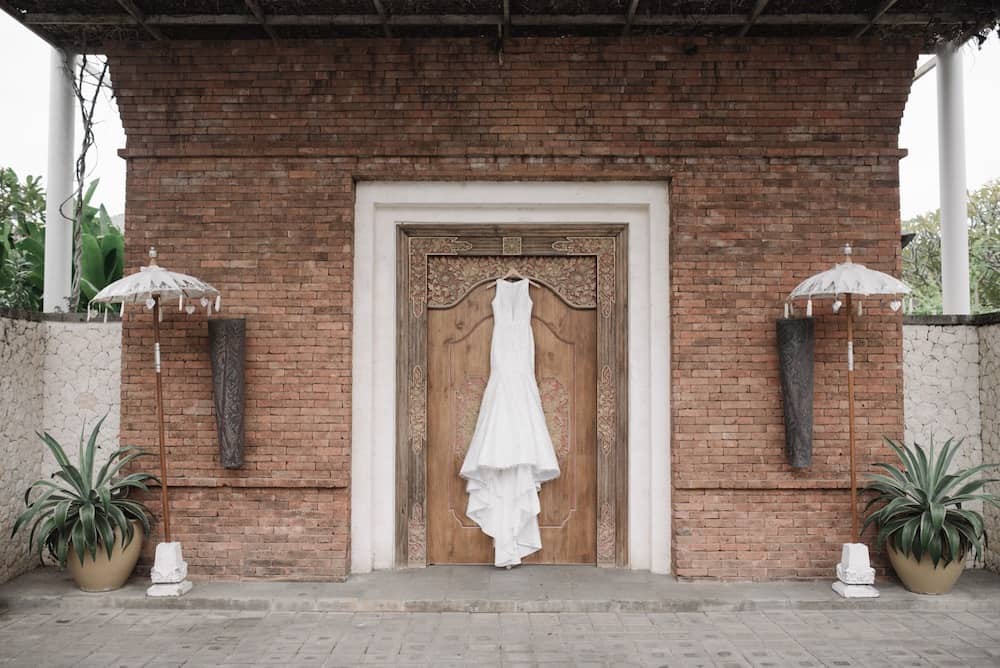
The 30 wears test should apply here as well – wedding dresses were traditionally family heirlooms, a much treasured clothing item that was passed down from generation to generation. Instead of spending an outrageous amount on a custom-made designer label that will just end up forgotten and collecting dust in your wardrobe, why don’t you rent? I wore a pre-loved design that was initially made for a photo shoot, and I doubt anyone could tell that it was a second-hand wedding gown.
More adventurous brides could opt to wear a dress that’s made out of upcycled fabric and eco-friendly materials – for more inspiration, check out this helpful list of sustainable and ethical wedding dress designers and (online) stores.
3. Say no to a balloon release
It may look beautiful on pictures, but has anyone considered that once the helium gas has dissipated, balloons end up tainting our waters, and poisoning critically endangered marine creatures. Is it worth harming our environment for such a short-lived event?
4. Donate your leftover food
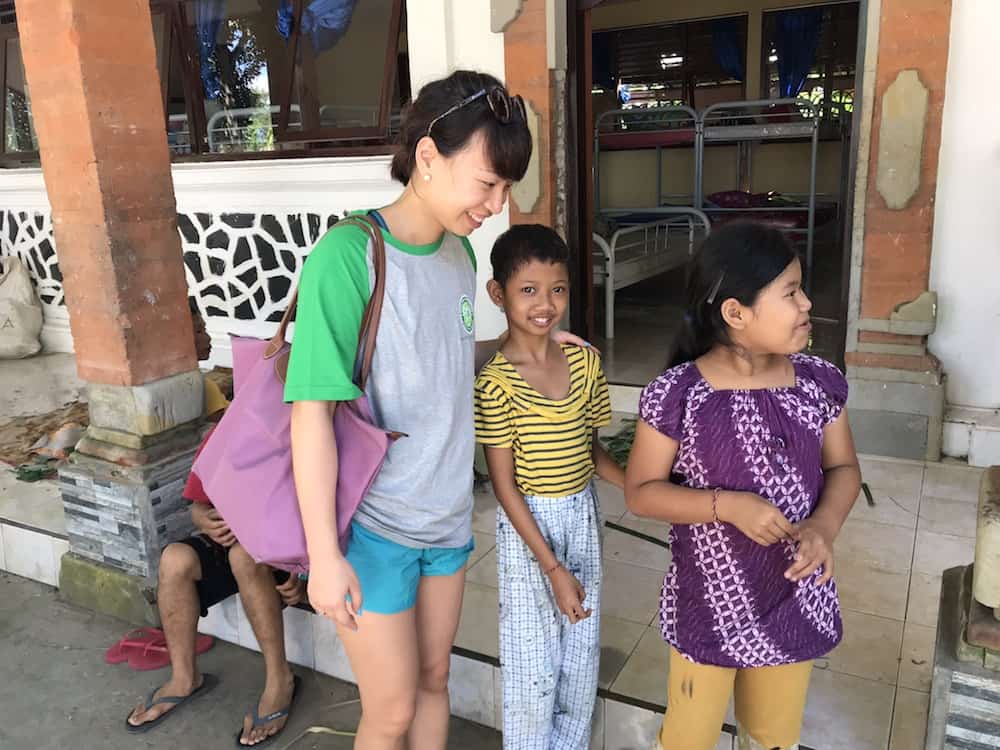
Contact your local food bank who will be more than happy to pick up your surplus food, and redistribute it to those in need. For anyone planning a wedding in Bali, I can wholeheartedly recommend SOS Bali, a food recovery NGO that rescues leftover but perfectly edible food from hotels and restaurants, and delivers them to orphanages on the island. They have a qualified nutritionist who is responsible for examining the quality of food recovered, so rest assured that the food donated to them will be cross-checked against strict food safety standards.
5. Avoid plastic
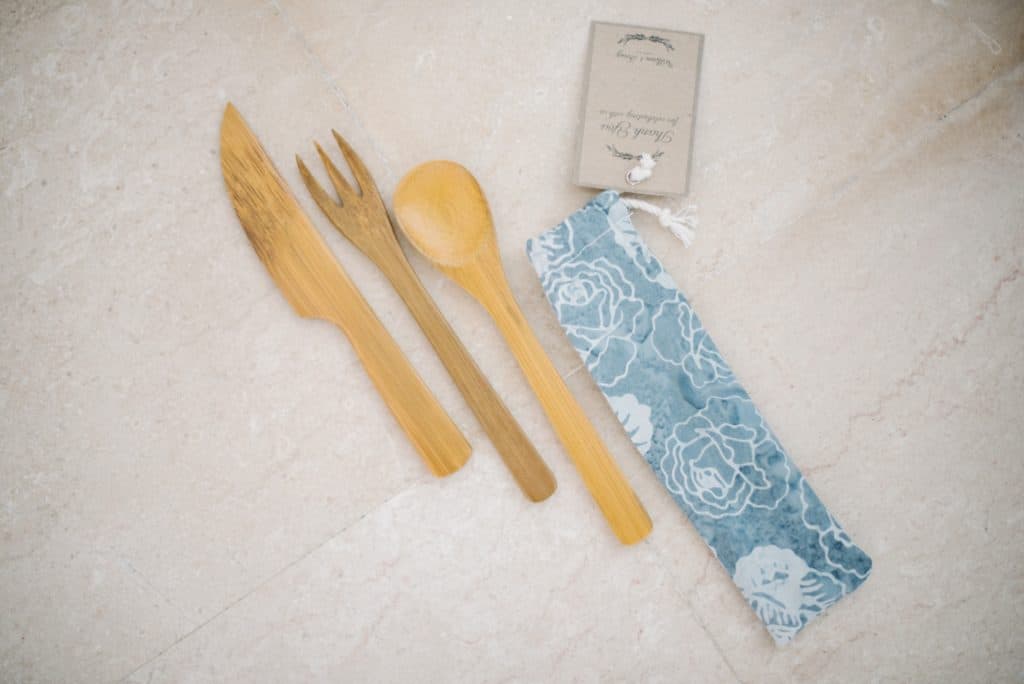
Use stainless steel, bamboo or biodegradable cutlery, glasses and straws instead of plastic. We have enforced a strictly no-straw and no-plastic policy during our cocktail reception and dinner, and gifted a set of bamboo cutlery with a unique batik packaging and made with natural dyes, as a subtle reminder to our guests to be more mindful of their plastic consumption.
The cutlery set came from the social enterprise Yasminida Bali, who employs local artisans, underprivileged women and people with disabilities, applies a zero-waste policy in its production processes, and often makes its beautiful accessories from textile offcuts and recycled materials donated by hotels. Evoware and Avani are two other ventures we would recommend in Bali to make your order of cups, cutlery and bags made out seaweed and cassava.
6. Recycle the flowers in your décor
Brides often feel pressured to organize the most elaborate décor for their reception, flying in imported flowers, which is both resource- and energy-intensive, and extremely harmful to mother nature. Focus on choosing greens and flowers that are locally available, and once your reception ends, donate your florals to a nursing home, hospital, orphanage or shelter, so others can enjoy their beauty too.
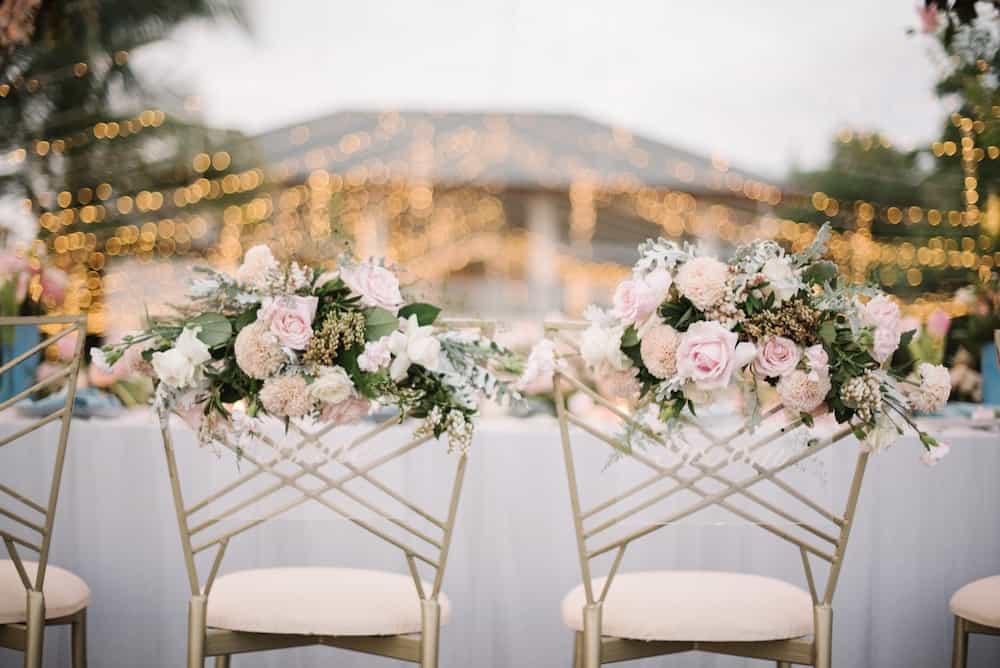
We are eternally grateful our decorator, Flora Botanica Designs for getting onboard with our aspirations to at least try to be more sustainable with our décor choices, while creating a magical backdrop for our ceremony and reception. We have also come across Daur Bunga, a recycling movement that focuses on giving a new life to discarded flowers, and ecoBali, who could help you take care of the massive amount of waste generated from your wedding in a more responsible manner.
7. Prepare socially and environmentally conscious wedding gifts
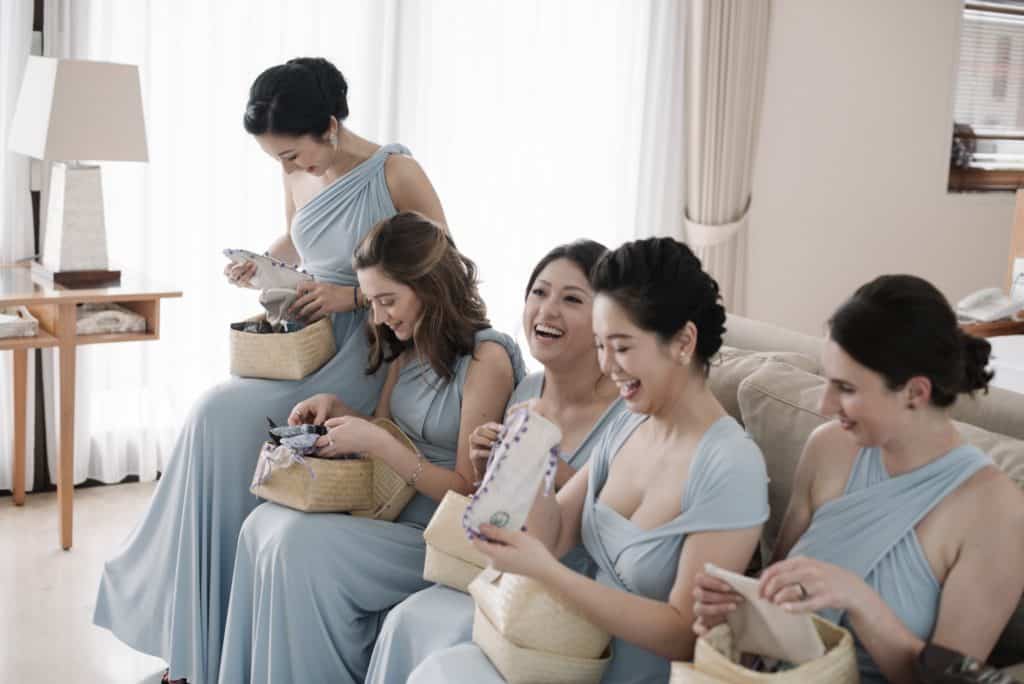
You don’t have to be royalty to donate the proceeds of your wedding gifts to a charity. Use your wedding as an opportunity to support a social or environmental cause that’s close to heart, and which represents who you are as a couple.
By working with organizations that support or employ at-risk youth, people with disabilities, marginalised women, or victims of human trafficking and domestic abuse, our wedding gifts have helped us make a(n) –albeit infinitesimal – contribution to empowering some of the most vulnerable segments of society.
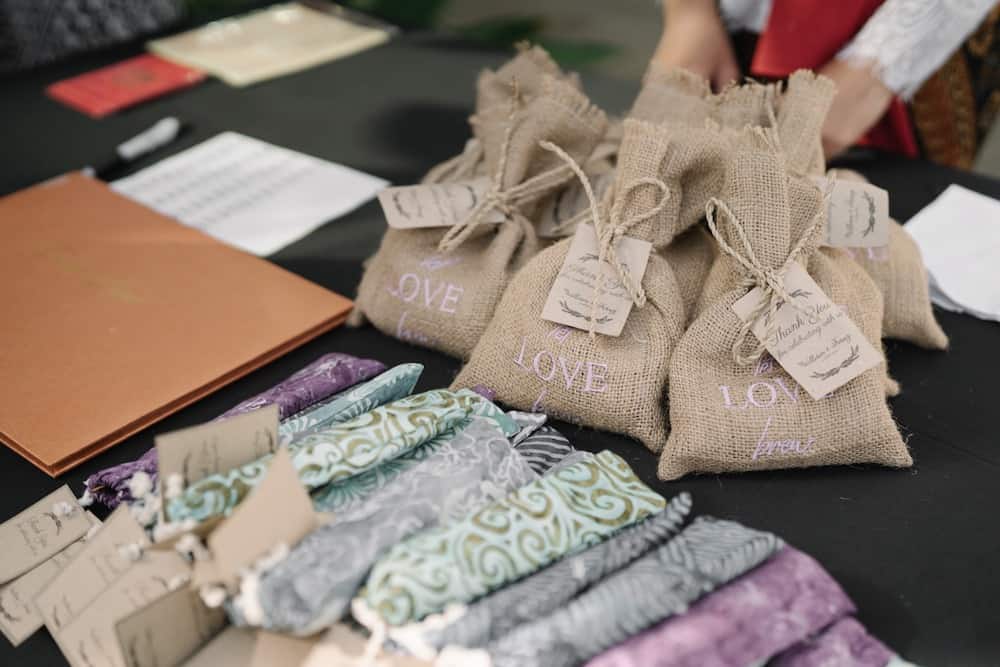
Gifting greeneries such as succulents or plant seeds is such a powerful representation of a new life and chapter for the newlyweds. We chose to gift locally grown rosella tea seeds, which were prepared in a handmade pouch together with a rosella-infused salt bottle by Muntigunung Community Social Enterprise.
I have been a long-time supporter of the social enterprise’s efforts in tackling rampant unemployment, child marriage and neonatal mortality in the Northeastern part of Bali, and their mission of helping these impoverished communities move away from begging in key tourist destinations to earning a stable livelihood as farmers, artisans or trek guides.
Villagers are trained on sustainable farming methods to grow rosella tea, cashew nut, palm sugar and moringa, and the social venture undertakes extensive reforestation and replanting efforts to address the devastation caused by landslides in the area. The community is also renowned for their hammocks, palm leaf (lontar) packaging boxes, bags and other accessories, all handmade from traditional textiles and eco-friendly raw materials, most of which originate from Muntigunung.
In addition, the social venture constructed custom designed tanks to provide access to safe drinking water in an area that’s plagued by severe droughts every year, and educates the villagers on the importance of obtaining an identity card to receive basic healthcare and education .









